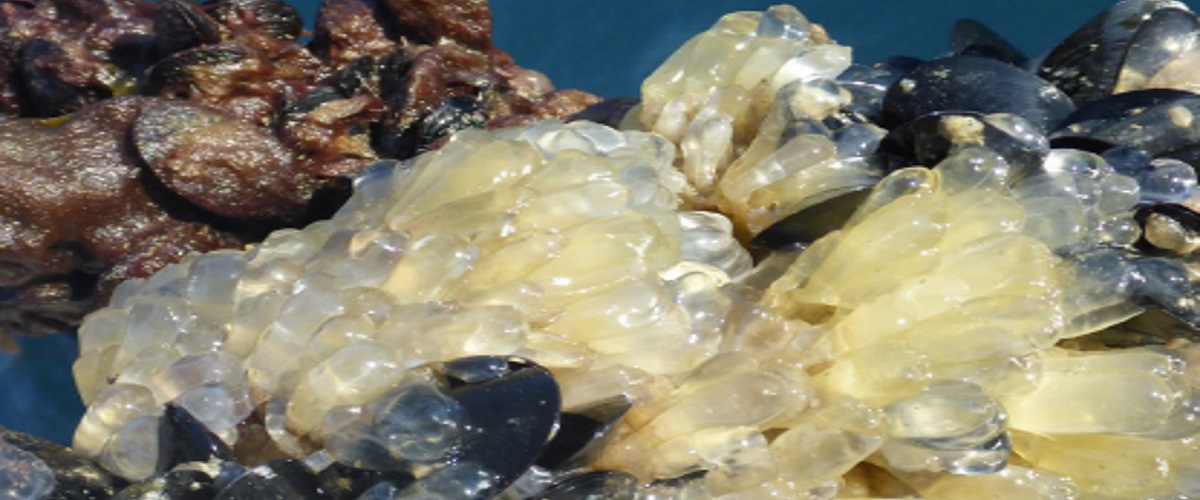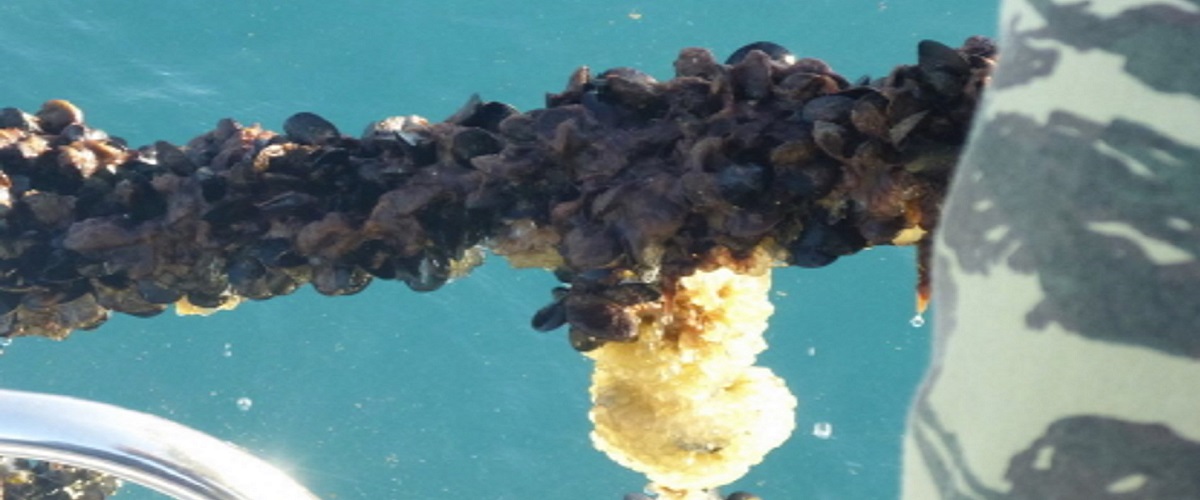Funding:«Development of the best control practices of invasive ascidians in mussel farming infrastructures and remediation of economic effects of invasion», Operational program Fisheries & Sea 2014-2020, Code MIS 5048463
Responsible:Theodorou Ioannis, Associate Professor, Department of Animal Production, Fisheries and Aquaculture, University of Patras .
Web: http://www.ascidians.upatras.gr
Ascidians, sea squirts or tunicates are benthic marine invertebrates present throughout the marine environment from the intertidal to the deep-sea. The high invasive potential of some marine species of this group represents a threat to marine biodiversity worldwide.
These organisms can colonize all types of hard substrate both natural and artificial, especially in an environment characterized by low diversity fauna such as coastal lakes, lagoons, harbors and shellfish farms.

The list of ascidian in Greece consists of a significant percentage of invasive and cryptogenic species. However, there is a lack of knowledge regarding their biology and genetic behavior in relation to existing species in the Mediterranean. Moreover, there is less known regarding their impacts on the mussels growth.
On the other hand, it has been reported that they may be vectors of toxic algae thus contaminating mussels with toxins.
The main objectives of the project encompass the records of ascidian species in mussels farms located in the Thermaikos Gulf, Maliakos Gulf, and bay of Fanari (Komotini).
The novelty of the proposal concerns the fact that the proposals for controlling the populations of the alien species that will emerge will be in a win-win context, balancing the optimal control of the alien species with practices that will ensure the lowest cost on the part of the mussel farmers.

The project is co-financed by the European Union and Greek national funds through the Operational Program Competitiveness, Entrepreneurship and Innovation, under the call Special Actions AQUACULTURE – INDUSTRIAL MATERIALS – OPEN INNOVATION IN CULTURE.


